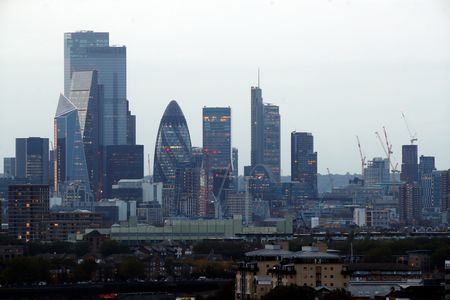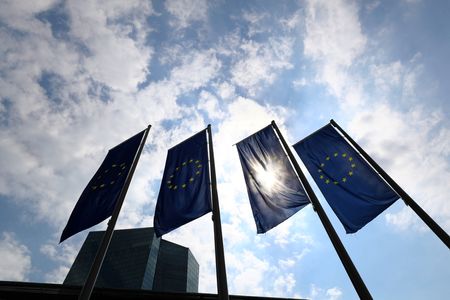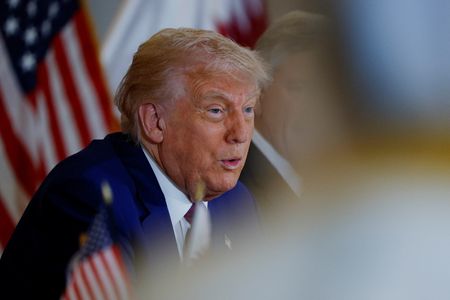By William Schomberg and Suban Abdulla
LONDON (Reuters) -Britain’s economy grew more strongly than expected in early 2025, giving a boost to the government and finance minister Rachel Reeves, who nevertheless faces a stiffer test ahead due to her tax hike on businesses and Donald Trump’s trade wars.
Between January and March, the economy accelerated to show growth of 0.7%, up sharply from an increase of 0.1% in the last three months of 2024, official data showed on Thursday.
That was above the 0.6% growth forecast in a Reuters poll of economists and which was also expected by the Bank of England.
In March alone, the economy grew unexpectedly, expanding by 0.2% from February, the Office for National Statistics said. The Reuters poll had pointed to a flat reading of 0.0%.
Sterling edged up against the U.S. dollar after the data was announced.
Reeves, who has been under fire from business leaders and opposition parties for her decision to increase social security contributions from April, said the data was a show of strength in the economy and its potential.
“In the first three months of the year, the UK economy has grown faster than the U.S., Canada, France, Italy and Germany,” she said in a statement.
Reeves and Prime Minister Keir Starmer are trying to kick-start the economy via increased spending on infrastructure and other reforms that they hope will boost investment.
However, the BoE said last week it expected the strong growth in the January-to-March period would prove temporary with output likely to expand by 1% this year, speeding up only slightly to 1.5% growth in 2027.
Trump’s trade tariffs are expected to slow the global economy while British businesses have said they will be hit by big rises in employment taxes ordered by Reeves and in the minimum wage, which both came into effect in April.
Suren Thiru, economics director at ICAEW, an accountancy body, said the first-quarter growth spurt was likely to prove temporary with some businesses rushing to meet orders before the U.S. tariffs took effect.
“This robust quarterly reading is probably the pinnacle for economic growth this year, with activity likely to slow sharply going forward as tax and tariff rises and global uncertainty bite,” Thiru said.
But last week’s new trade deal signed with the United States could limit the blow to Britain’s economy. Under the deal the U.S. will reduce higher tariffs on steel and aluminium but will continue to impose a new 10% tariff on imports of most British goods.
So far, Britain’s consumers have remained largely unfazed by worries about the outlook for the economy. Data published this week showed a rise in their spending over March and April.
The ONS said growth in the first three months of 2025 was largely driven by the services sector although production grew significantly too after a period of decline.
Business investment grew strongly, expanding by 5.9% from the last quarter of 2024, the biggest increase in two years.
Elliott Jordan-Doak, senior U.K. economist at consultancy Pantheon Macroeconomics, said some of the jump in business investment reflected a big increase in imports of aircraft, which count as investment.
Real GDP per head – which gives a better sense of how economic growth is being felt by people – grew by 0.5%, following two consecutive quarterly falls, the ONS said.
(Writing by William Schomberg; Editing by Muvija M, Mark Potter and Hugh Lawson)










